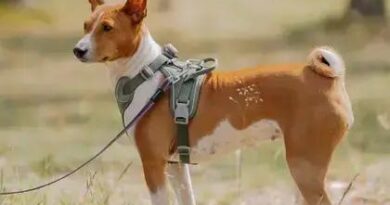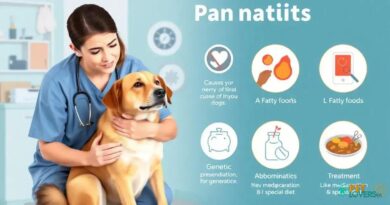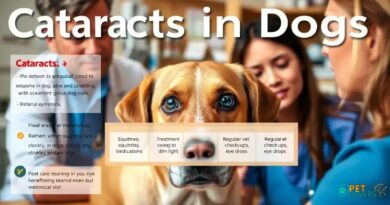What is: Zinc levels in dog diets
What is Zinc in Dog Diets?
Zinc is an essential trace mineral that plays a crucial role in various physiological functions in dogs. It is vital for maintaining a healthy immune system, promoting skin health, and supporting the overall growth and development of your canine companion. Understanding the importance of zinc levels in dog diets is essential for pet owners who want to ensure their dogs receive a balanced and nutritious diet.
The Role of Zinc in Canine Health
Zinc contributes to numerous bodily functions, including enzyme activity, protein synthesis, and cellular metabolism. It is also involved in the production of DNA and RNA, making it essential for cell division and growth. A deficiency in zinc can lead to several health issues, such as skin problems, poor coat condition, and impaired immune response, which can make dogs more susceptible to infections and diseases.
Sources of Zinc in Dog Food
Zinc can be found in various food sources, including meat, fish, eggs, and certain grains. High-quality commercial dog foods often contain zinc in the form of zinc oxide or zinc sulfate, which are easily absorbed by the body. When selecting a dog food, it is crucial to check the ingredient list to ensure it contains adequate levels of zinc to meet your dog’s nutritional needs.
Recommended Zinc Levels for Dogs
The recommended dietary allowance (RDA) for zinc varies depending on the dog’s age, size, and overall health. Generally, adult dogs require about 15 mg of zinc per day, while puppies and pregnant or nursing dogs may need higher amounts. It is essential to consult with a veterinarian to determine the appropriate zinc levels for your specific dog, as individual needs may vary.
Signs of Zinc Deficiency in Dogs
Recognizing the signs of zinc deficiency is crucial for maintaining your dog’s health. Common symptoms include hair loss, skin lesions, and a dull coat. Additionally, dogs may experience lethargy, decreased appetite, and increased susceptibility to infections. If you notice any of these signs, it is essential to consult your veterinarian for a thorough evaluation and potential dietary adjustments.
Impact of Excess Zinc on Dogs
While zinc is essential for canine health, excessive levels can lead to toxicity. Symptoms of zinc toxicity may include vomiting, diarrhea, and abdominal pain. In severe cases, it can cause hemolytic anemia and kidney damage. It is vital to ensure that your dog’s diet contains the right balance of zinc, as both deficiency and excess can lead to serious health issues.
Choosing the Right Dog Food
When selecting dog food, it is essential to choose a high-quality brand that meets the nutritional standards set by the Association of American Feed Control Officials (AAFCO). Look for dog foods that list meat and animal by-products as the primary ingredients, as these are typically rich in zinc. Additionally, consider consulting with a veterinarian to find the best food options for your dog’s specific needs.
The Importance of Regular Veterinary Check-ups
Regular veterinary check-ups are crucial for monitoring your dog’s overall health, including their zinc levels. Your veterinarian can perform blood tests to assess your dog’s mineral levels and recommend dietary changes if necessary. Keeping up with routine visits ensures that any potential health issues are identified and addressed promptly, helping to maintain your dog’s well-being.
Supplementing Zinc in Your Dog’s Diet
In some cases, your veterinarian may recommend zinc supplements to address deficiencies or support specific health conditions. It is essential to follow your veterinarian’s guidance regarding supplementation, as improper dosing can lead to adverse effects. Always choose high-quality supplements designed specifically for dogs to ensure safety and efficacy.
Conclusion: The Balance of Zinc in Dog Diets
Maintaining the right balance of zinc in your dog’s diet is vital for their overall health and well-being. By understanding the importance of zinc, recognizing the signs of deficiency or excess, and choosing high-quality dog food, you can help ensure your canine companion lives a healthy and happy life.




